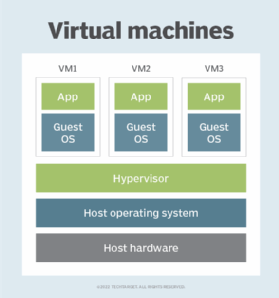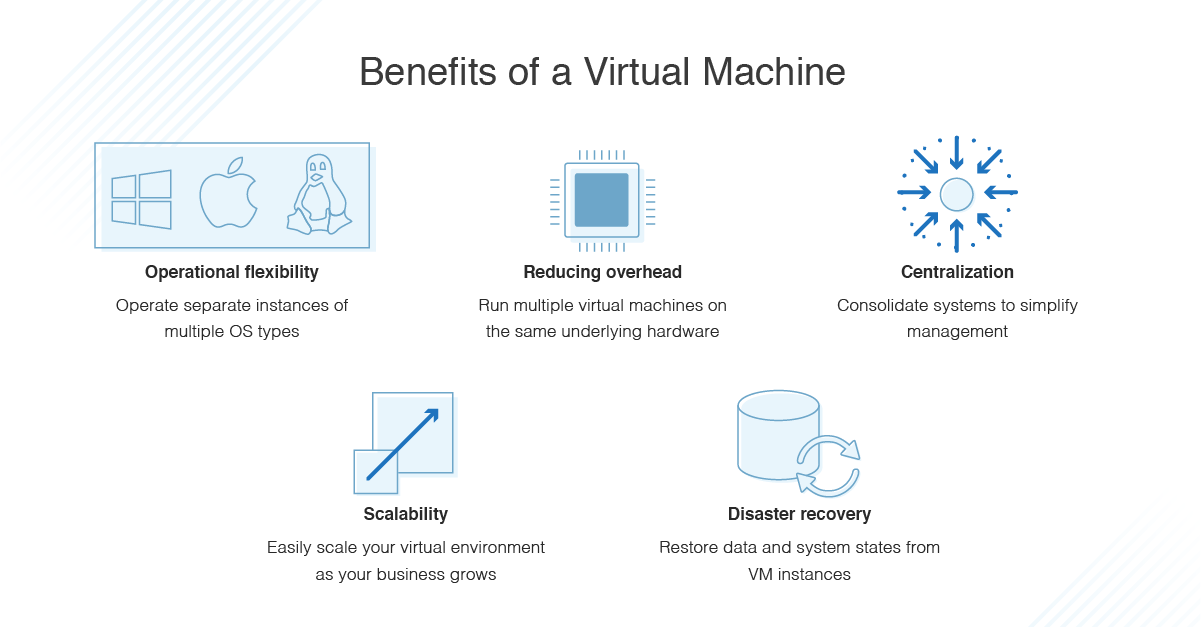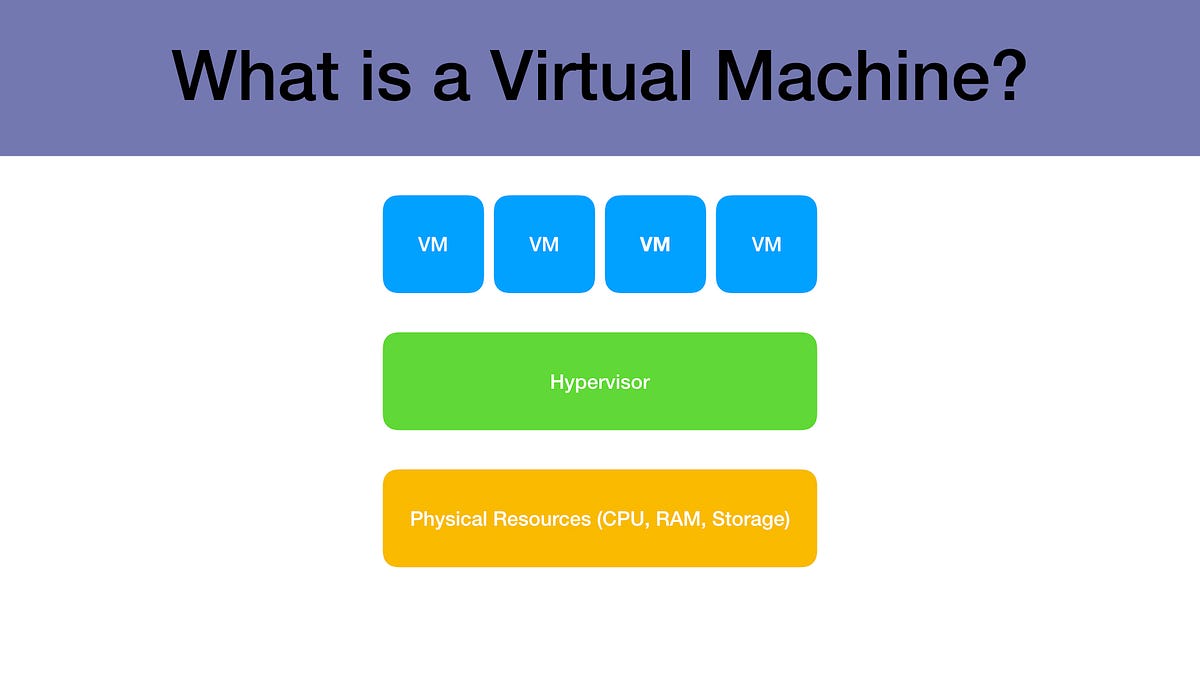Sometimes, dealing with computers can feel like a puzzle, especially when you start looking at setting up virtual machines. You might hear about things like VMware or VirtualBox, and it can seem a little bit much to figure out on your own. But what if there was a way to make all of that feel much simpler, almost like having a helpful guide by your side?
Many people find themselves wanting to try out different operating systems, perhaps a new version of macOS on their Windows computer, or maybe a Linux setup for some development work. It’s a common wish, and virtual machines are the way to make it happen without needing to buy a whole new machine. Yet, getting everything just right, from connecting to the internet to making sure things run without a hitch, can be a bit of a challenge for some folks, you know?
This is where thinking about a "VM agency" comes in. It’s not necessarily a physical office you visit, but rather a way of approaching virtual machine management that brings ease and clarity to what might otherwise feel like a confusing process. It’s about having the right information and the right steps to make your virtual computer setups work just as you want them to, really.
Table of Contents
- What's the Big Deal with Virtual Machines, Anyway?
- How Does a VM Agency Help with Connectivity?
- Are Updates and Tools Part of a VM Agency's Offer?
- What About Expanding Your Virtual Space?
What's the Big Deal with Virtual Machines, Anyway?
A virtual machine, or VM, is basically like having another computer running inside your current one. It’s a software program that acts like a separate machine, complete with its own operating system and applications. This can be super handy for a bunch of reasons. For instance, you might want to try out a different version of Windows, or maybe even a whole other operating system like macOS or Linux, without changing anything on your main computer. It’s a pretty neat trick, actually.
People use VMs for all sorts of things. Some folks might use them for testing new software in a safe spot, so if something goes wrong, it doesn't mess up their main system. Others might need to run older programs that only work on specific operating systems. It’s also quite popular for developers who need different environments for their projects. So, in some respects, it gives you a lot of freedom and flexibility with your computer setup.
Tools like VMware Workstation Pro and VirtualBox are popular choices for making these virtual computers. They provide the framework, if you will, to set up and manage these separate systems. For example, the VMware Workstation Pro v17.6.3 version recently came out, and it fixes some issues, like when Windows 11 virtual machines would freeze up or crash. That’s a pretty big deal for people using that combination, so, you know, it makes things a lot smoother.
And then there’s VirtualBox, which also has different versions, like 5.2.44 or the more recent 7.1. These tools are constantly being updated, offering new features and fixing little quirks. It’s almost like they are always improving to make your virtual experience better. You can find older builds too, if you need a specific version for some reason, which is pretty handy, as a matter of fact.
Getting Started with Your Own VM Agency
When you first think about setting up a virtual machine, it can feel like a lot of steps. But if you approach it with the mindset of a "VM agency," meaning you have a clear plan and know what to do, it becomes much more manageable. For example, if you want to run macOS 14 Sonoma on your Windows computer, you first need to get the VMware software. Then, you might need a little helper tool called VMWare Unlocker. These are the initial bits you gather, like preparing your tools before a big project, you see.
After that, it’s about creating the new virtual machine. You open up your VM software, tell it you want a macOS version, and then you just let it get ready to install the operating system later. It’s pretty straightforward. Then, a crucial step for many is adding a virtual hard drive. You can even choose to use a physical disk if you want, which is pretty neat. This whole process is like setting up a new room in your virtual house, providing space for everything to live. It’s just a little bit of setup work that pays off.
For those who prefer Linux, getting a system like Ubuntu 16.04 or CentOS 7 up and running in a virtual machine is also very common. The source text mentions how VMware is a full-featured virtualization software that works well with CentOS 7, making it a good spot for building server setups or for testing things out. This kind of setup is very useful for many people, especially those who work with server systems, you know.
How Does a VM Agency Help with Connectivity?
One of the trickier parts of virtual machines for some people is getting them to talk to the outside world, or even to other computers. This is where network settings come in, and they can feel a bit confusing at first. But a good "VM agency" approach simplifies this by showing you how to get your virtual computer online and connected to others. For instance, sometimes your virtual machine might not be able to get on the internet, and that’s often because some VMware services on your main computer aren’t running. Checking these services is a simple first step, actually.
Then, there are different ways your virtual machine can connect to your network. There's something called "NAT" (Network Address Translation) and "Bridged Mode." NAT is a bit like your virtual machine borrowing your main computer's internet connection, sharing its address. Bridged mode, on the other hand, makes your virtual machine act like a completely separate computer on your network, getting its own address. Each has its uses, and understanding which one fits your needs is part of what a "VM agency" helps you figure out, you know.
For example, if you want two computers to connect to each other's virtual machines remotely, you’d need to adjust the virtual machine’s network settings and also configure your Windows firewall. This sounds a bit involved, but it’s really about making sure the pathways are open and secure. It’s like setting up a special door for your virtual computer to talk to another, which is pretty cool when you think about it.
Making Remote Connections Simple with a VM Agency
The idea of remotely connecting to a virtual machine on another computer can seem a little bit advanced, but it’s a powerful feature. Imagine you have a virtual machine set up on one computer, and you want to access it from another computer in your house or even from somewhere else. This is totally possible by setting up the network adapters on your virtual machine and making sure your firewall allows the connection. It’s a bit like giving your virtual machine its own phone number, so others can call it directly, more or less.
The text mentions detailed steps for doing this, including adjusting network adapters and working with the Windows firewall. These steps are all about ensuring smooth communication. A "VM agency" approach would break these steps down, making them easy to follow, so you don't get lost in the technical jargon. It’s about making sure your virtual setup is not just running, but also accessible and useful in the ways you need it to be, very much so.
Whether you're using VMware or VirtualBox, understanding these network modes and how to open up connections is a big part of getting the most out of your virtual environment. It allows for more flexible work setups, like running a server in a VM and accessing it from your laptop, or sharing a virtual development environment with a colleague. It’s pretty useful, honestly, for a lot of different situations.
Are Updates and Tools Part of a VM Agency's Offer?
Keeping your virtual machines running well means paying a little bit of attention to updates and extra tools. Just like your main computer needs updates to stay safe and perform its best, so do your virtual machines. This is a core part of what a "VM agency" would help you with – making sure everything is current and working smoothly. For instance, the VMware Workstation Pro v17.6.3 release fixed security holes and problems with Windows 11 VMs freezing, which is a big deal for stability, you know.
Then there are things like "Open VM Tools" for Linux guest operating systems. These are open-source bits of software that work with VMware Tools. They get installed with some Linux systems and help the virtual machine run better. They can make the display look nicer, and make sharing files between your main computer and the virtual one much simpler. It’s like giving your virtual machine a set of helpful hands, which is pretty cool.
VirtualBox also has its own "extension packs" that add more features, like support for USB 2.0 and 3.0 devices, or remote desktop connections. These are usually released under a personal use license, so they are available for most people. Staying on top of these little extras is what helps your virtual experience go from good to great, truly.
Keeping Your Virtual Machines Happy and Healthy with a VM Agency
A "VM agency" approach means not just setting things up, but also maintaining them. This includes knowing about specific commands or tools that help manage your virtual disks, like the "vmkfstools" command for VMware. This command is used for managing virtual disks and is quite important for people who work with these systems a lot. It’s like having a specialized wrench for a specific part of your virtual engine, basically.
Beyond the core system, there are also specialized virtual tools for different needs. For example, the Nx virtual mixing room supports multiple head trackers working at the same time, and you can even name them. This is for audio folks, allowing them to create virtual sound environments. Or there’s the virtual world framework for Unity, which helps you quickly build multi-user virtual spaces that can be accessed from web browsers, phones, or desktops. These are pretty interesting applications of virtual technology, really.
Even things like "play-to-earn" games, where in-game items like weapons or virtual real estate are represented as NFTs, show how virtual environments are creating new kinds of economies. The rise of games like Axie Infinity points to the potential of these virtual items. So, you know, the virtual world is expanding in many directions, and a "VM agency" perspective helps you keep up with all of it.
What About Expanding Your Virtual Space?
As you use your virtual machines, you might find that you need more space. This is a common situation, especially if you’re installing a lot of software or storing large files within your virtual system. The good news is that expanding the hard drive or disk space of your virtual machine is something you can do. The text mentions detailed instructions for expanding disk space on a VMware Linux system like Ubuntu 16.04, which is a pretty common task for users.
This process usually involves a few steps, but it’s definitely doable, even if you’re not a super technical person. It’s like adding an extra room to your house when you need more space. A "VM agency" would guide you through these steps, making sure you understand how to safely grow your virtual environment without losing any of your important data. It’s about making sure your virtual machine can keep up with your needs, you know.
The ability to adjust resources, whether it’s disk space or memory, is one of the big advantages of using virtual machines. You’re not stuck with the initial setup; you can change things as your needs change. This flexibility is a key part of why so many people find virtual machines so useful, as a matter of fact. It’s pretty adaptable, which is nice.
Growing Your Virtual World with a VM Agency
Beyond just expanding disk space, the concept of a "VM agency" also includes thinking about how your virtual environments can serve bigger purposes. For example, VMware ESXi is a tool that’s often used as a core part of a software-defined data center. It helps make systems more flexible, easier to control, and uses hardware more efficiently. It’s a bit like building a very smart and efficient foundation for a whole collection of virtual systems, very much so.
This kind of tool shows how virtual technology goes beyond just running one or two operating systems on your desktop. It extends to managing large-scale virtual infrastructures for businesses and organizations. It helps improve uptime and can even lower costs in the long run by making better use of physical computer hardware. So, you know, the ideas behind virtual machines are pretty far-reaching.
Whether you're just starting with a single virtual machine to try out a new operating system, or you're thinking about how to manage a whole bunch of virtual servers, the principles of a "VM agency" remain useful. It’s about having a clear approach, understanding the tools, and knowing how to make your virtual systems work for you. It's about making the virtual world accessible and productive for everyone, really.
Related Resources:



Detail Author:
- Name : Michaela Romaguera DVM
- Username : rschmidt
- Email : daphnee99@yahoo.com
- Birthdate : 1974-11-10
- Address : 354 Marvin Rapid Lehnerside, MO 23431-0636
- Phone : 908-600-8302
- Company : Lakin, Yundt and Walter
- Job : Mixing and Blending Machine Operator
- Bio : Non ut aut illum aliquid. Neque animi cum maiores facere. Aperiam fugit laboriosam neque consequuntur fugit et.
Socials
tiktok:
- url : https://tiktok.com/@christophe_real
- username : christophe_real
- bio : Molestias consequatur eveniet harum deleniti corrupti autem esse doloremque.
- followers : 2706
- following : 2534
facebook:
- url : https://facebook.com/christophejohnson
- username : christophejohnson
- bio : Quo excepturi autem non ducimus alias qui. Fuga aut nemo voluptas tempora est.
- followers : 6111
- following : 2972
instagram:
- url : https://instagram.com/johnsonc
- username : johnsonc
- bio : Fugit qui ratione ratione itaque. Sit consectetur et odit quae sint voluptatibus itaque.
- followers : 775
- following : 756